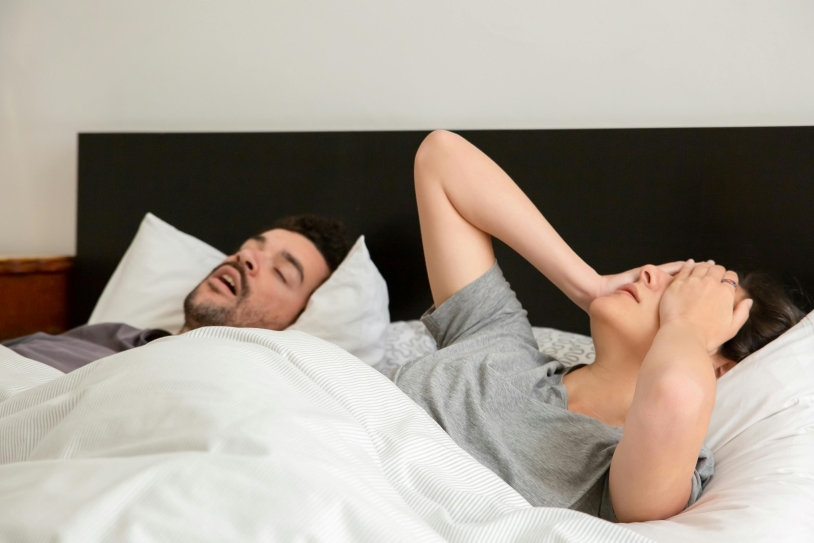Snoring and sleep bruxism (teeth grinding) are common sleep-related issues that can significantly impact oral health. Understanding the implications of these issues is crucial for both dental professionals and individuals seeking to maintain optimal oral well-being.
Snoring:
Snoring is often a result of the relaxation of the muscles and tissues in the throat during sleep. While occasional snoring may be harmless, chronic and loud snoring can be a sign of underlying concerns. It can contribute to:
- Dry Mouth: The repetitive intake of air through the mouth during snoring can lead to dry mouth, reducing saliva flow. Saliva plays a vital role in maintaining oral health by neutralizing acids and preventing tooth decay.
- Gum Disease: Reduced saliva flow can also increase the risk of gum disease. Saliva helps in cleansing the mouth and removing bacteria, and its deficiency may lead to oral infections.
- Interrupted Sleep: Snoring can disrupt the quality of sleep for both the snorer and their sleep partner. Poor sleep quality is linked to various health issues, including compromised immune function and increased stress levels.
Sleep Bruxism (Teeth Grinding):
Sleep bruxism involves the involuntary clenching or grinding of teeth during sleep. This condition can have profound effects on oral health:
- Tooth Wear and Damage: The continuous grinding of teeth can lead to enamel wear, fractures, and damage to dental restorations. Over time, this may result in tooth sensitivity and other dental complications.
- Jaw Pain and TMD: Bruxism can cause jaw pain and contribute to temporomandibular joint disorders (TMD). Individuals may experience discomfort, difficulty in jaw movement, and headaches.
- Impact on Dental Work: Those with dental implants, crowns, or bridges may experience a higher risk of complications due to bruxism, potentially requiring additional dental interventions.
Addressing the Issues:
- Oral Appliances: Dental professionals may recommend oral appliances, such as mandibular advancement devices, to alleviate snoring and reduce the impact of bruxism.
- Lifestyle Modifications: Encouraging lifestyle changes, such as weight management and avoiding alcohol before bedtime, can help reduce snoring and improve overall sleep quality.
- Custom Night Guards: For individuals with bruxism, custom night guards can be crafted to protect the teeth from grinding forces during sleep.
Conclusion:
Understanding the relationship between snoring, sleep bruxism, and oral health is essential for effective prevention and management. Regular dental check-ups and open communication with healthcare providers can contribute to a comprehensive approach to maintaining both oral and overall well-being.
Also Read:

